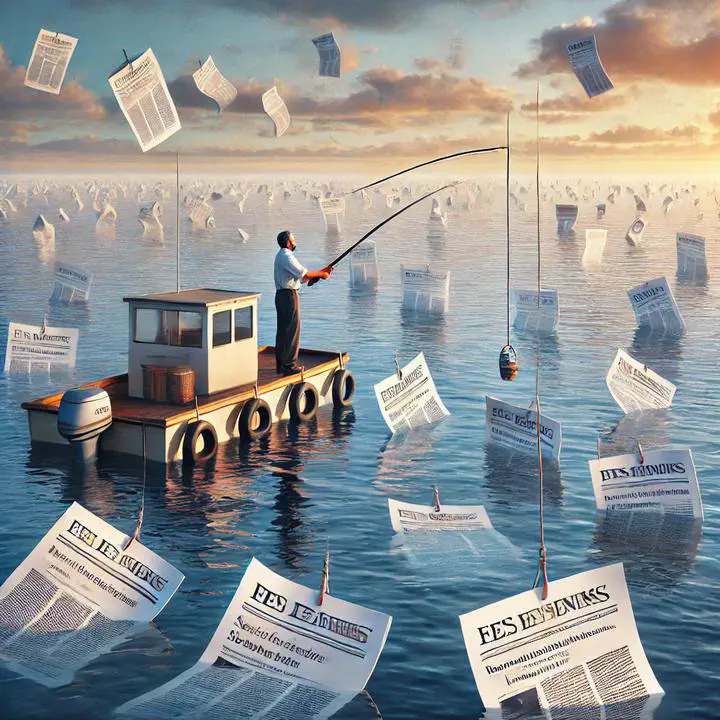The publication derby - Citation Cartels

We often think of the race to fish as the quintessential commons dilemma. So is the race to publish and generate citations according to a recent article in Science.
The problem with open access resources is that there is no agreed upon limit on how much actors can extract or dump. In the case of publications, researchers can “dump” as many manuscripts into the literature pool as they wish to fish for citations. Manuscripts are the hooks/nets to fish for citations. A recent article in Science describes how Cliques of mathematicians have been artificially boosting their colleagues’ citation counts by churning out low-quality papers that repeatedly reference their work.
The cost is that the literature becomes flooded with many papers. This makes it more difficult to search the literature and find quality research. This is analogous to making it harder to catch fish when a fishery is over-fished: one must search through a large ocean (of poor quality papers) to find quality work.
We all lose - just as in the classic open access fishery (forest, groundwater system, atmosphere….). We all work too hard to achieve the same thing. Should there be a “tradeable publication quota” just as in fisheries? One unintended consequence of such an institution might be the concentration of publication power in the hands of those researchers with the most access to financial resources, just as with concentration of effort in fisheries. Crafting effective institutions is a challenging problem!